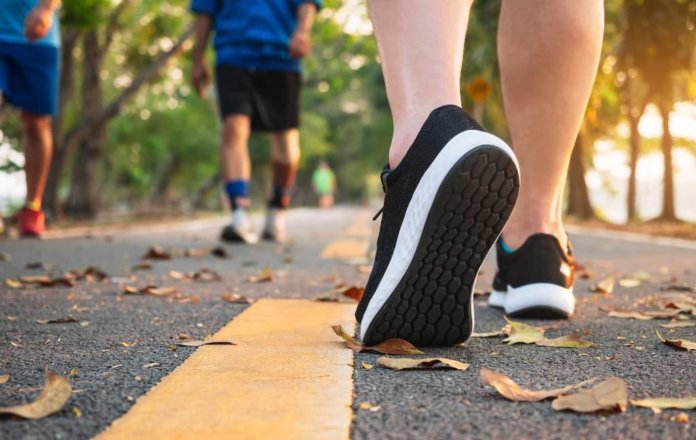Walking fast will increase your quality of life, this is a proven fact. Walking is our basic way of moving around. No car, bus, train, bicycle, boat, electric scooter, or an airplane can get you to places where walking can.
In these modern times, when obesity and chronic diseases are spreading like an epidemic, many people don’t enjoy walking very much. They think it’s boring, unnecessary, or an unwanted waste of time.
Walking is our main calorie spender
It is, unfortunately, the single most demanding physical activity that many people engage in every day. Basal metabolism, plus walking, is the formula most people live by these days.
Walking is healthy, and we should all walk more.
If you cannot walk more, try walking faster

Recently, scientists have discovered that the pace in which we walk can significantly affect our overall health. It seems that slow walking accelerates aging and harms both body and brain.
One study suggests that people who walk faster, live longer. In this article, we bring you the answers to all the why’s and how’s?
The Study of walking fast vs walking slow
This study followed one thousand participants born in the same year in a town in New Zealand. The study lasted for 40 years. It concluded that slow walkers are generally in worse shape than people who walk at a quicker pace.

The research also records a lower IQ (by 12 points) in slow-walking people later in life, as well as a worse shape of the immune system, teeth, and lungs.
Some experts suggest that, because of this, walking speed could be used as a diagnostic tool in the future.
Why is this important?

What researchers are puzzled about is the relationship between the cause and the consequence. They know that moving faster is healthier. However, it is still unclear to them if the slow walking is damaging the brain health or the impaired brain function is the cause of slow walking.
Answering this question would provide a new perspective on aging. If the poor cognitive function is responsible for the deterioration of physical health, then physical activity could potentially be a very good way to improve brain health.
Whatever the cause, it should be addressed at an early age. At least that is what all the research findings are pointing out.
Therefore, the best way to make sure that your brain and body are functioning using their full potential is to start activating them early on and maintaining high activity levels throughout life.
The Final Word
Walking faster can have many health benefits. The very fact that you are moving at a quicker pace means that you are creating more force with your muscles and spending more energy. More energy spent, equals more calories burnt. Such a lifestyle would inevitably lead to a healthier Body Mass Index (BMI) and a lower risk of chronic diseases caused by excess fat and sugar in the diet, such as hypertension, heart disease, and diabetes. If we add the recent scientific findings to these already known benefits, it becomes easier to understand why you should try to pick up your pace a bit. It seems to be worth the effort.




